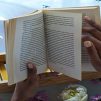
Literary journalism is journalism that is similar to fiction: it is read as literature and applies its techniques, but at the same time, it remains journalism, which means literary journalism does not involve fantasy. Reading the most fascinating and vivid literary-journalistic essay (let me say, Truman Capote), we assume that the author was guided by facts gathered following accepted journalistic standards, which, of course, does not mean that every word in this essay is the truth. The author’s task was not simply to inform us of certain events but to appeal to our sensibilities, primarily aesthetic ones, and tell the story in details that conventional journalism is not interested in.
American literary journalism has long been eclipsed by literature itself: fine literature diverged from conventional journalism in the nineteenth century. In the 20th century, the gap between them was aggravated by modernism, which failed to find a proper place for magazines and newspapers in its system of values. As a result, this hybrid had to wait for the triumph of the “new journalism” of the 1960s. Its leading apologist, Tom Wolfe, listed the features of this phenomenon in the introduction to his anthology called “The New Journalism” (1973). It contains narrative manner, dialogue, changing perspectives, attention to detail, total creative freedom, and the rejection of objectivity while insisting on truthfulness – identified the features of literary journalism that he had never noticed.
This article will tell you about the three perfect texts of American literary journalism.

“The Innocents Abroad” by Mark Twain (1869)
Mark Twain was engaged in journalism from the age of 12 and throughout his life – it brought him his first fame, a pen name, and made him a writer. In the 1860s, a predilection for accuracy and “factuality” easily coexisted with the most explicit entertainment and fiction.
In 1867, Twain, as a correspondent for the “Daily Alta California,” went on a sea voyage through Europe, the Middle East, and Egypt, and his reports and travel notes ended up in a book called “The Innocents Abroad,” which made him famous throughout the world.
In a sense, American journalism came out of letters: they once served as an essential source of information about life in the colonies and abroad. The newspaper has long been characterized by epistolary subjectivity. Twain’s book is a reminder of a time when no one thought that one day one of the hallmarks of “proper” journalism would be neutrality.
In his letters, Twain does not hesitate to act like a buffoon, sometimes unkind and not politically correct, as we would say today. Openly mocking the popular notions of foreign countries intended for the well-dressed tourist and contained in the relevant literature, he takes pleasure in transcending, if not the decent, then the expected. He speaks irreverently of the “Last Supper,” scolds French barbers and Italian guides, welcomes the beheading of the “insolent seducer,” Abelard.
Twain’s journey is certainly not only a geographical trip but also a historical one, before which Twain resolutely refuses to be in reverence. Sometimes it’s funny, sometimes not so much, but all the more valuable are the lyrical, sublime notes that sound when Twain is genuinely captivated by something. Then he launches into descriptions and arguments that one would expect from an intelligent, observant, knowledgeable “pilgrim.” He will admire the Roman soldier who did not leave his post in perishing Pompeii, the Egyptian sphinx looking out over the ocean of time, the Russian emperor who invited American travelers to visit, but he will not allow excessive pathos.

“In Cold Blood” by Truman Capote (1965)
Capote came to journalism as a young writer looking for new forms. He made his debut in the second half of the 1940s. A decade later, he found himself in a creative block, recovering from which he was aided by a tour through the USSR with a company that performed the opera “Porgy and Bess.” Capote wrote about the tour essay “The Muses are Heard” (1956), where he tested and evaluated the new method: the facts are good, but to add some fiction essays is also not a sin.
Three years later, he read a newspaper article about the murder in the town of Holcomb, of the family of Herbert Clutter farmer, and went there to gather information, with the help of his friend Harper Lee (who had not yet published her novel “To Kill a Mockingbird”). His initial idea was to write about the impact of a brutal murder on the life of the quiet, peaceful countryside. It affected the town so that fear and anxiety prevailed, and Capote had great difficulty in seeking answers to his many questions. He gradually overcame his distrust, but then fate intervened: the murderers had been caught, and Capote decided that he needed to interview them. After Capote earned their trust, he naturally used all their confessions in the book, which he did not finish until the murderers had been executed and the six-year-long story ended.
“In Cold Blood” was published in “The New Yorker” in 1965, and the following year came out as a book that became a benchmark of true crime and a super bestseller. Capote was able to show that a documentary book can be as good as a novel in terms of artistry, drama, and depth. “In Cold Blood” contains both stylistic brilliance and the relentless footsteps of doom that destroy the innocent and the guilty and the horror that lurks in man, waiting for a chance to break free.

“Dispatches” by Michael Herr (1977)
In offering his services to “Esquire” magazine in May 1967 as a correspondent in Vietnam, Michael Herr simultaneously provided a new understanding of journalism – particularly military journalism.
What he saw in Vietnam shocked him: the essays in the book “Dispatches” reflect not only the brutality of the war but also its surrealism, the total insanity affecting everything and everyone.
Herr’s nervous prose is structured in such a way that a seemingly comic detail is filled with horror, for example, in the episode when everyone has fallen to the ground from the mine explosion, and Herr already thinks he can taste his brains in his mouth – but all he has received is a boot to the face from the soldier falling in front of him.
Michael Herr’s essays may seem fragmentary, fractured – but the overflowing thoughts, sketches, conversations, portraits, facts come together in an eerie mirror that reflects the era: returning from the war, Herr couldn’t distinguish between Vietnam veterans and rock’n’roll veterans.
Perhaps the most frightening thing about the author’s experience is that not all of it remained in Vietnam; not all of it has been forgotten like a bad dream. Instead, some things illuminated postwar, post-traumatic life with a bright sickening light, and the conclusion from this was: “Vietnam was what we had instead of happy childhoods.” All of this went into the articles published in “Esquire” that later made up the book, as well as the movies “Full Metal Jacket” and “Apocalypse Now.” Michael Herr is the co-screenwriter of the first one and the writer of the voice-over text for the second one.
Any serious conversation about Herr’s book is likely to talk about the author’s liberties, for example, composing characters from traits that belonged to different people. But such is the peculiarity of literary journalism that this technique is common for all its gravitation toward authenticity.





